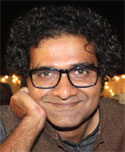
By Arshad Alam, New Age Islam
18 March 2016
Agreeing with Asaduddin Owaisi is difficult. Most of the time, his speeches are rabble rousing and targeted to paint the Muslim community with a sense of victimhood. Methodologically, it is not much of choice between a Muslim Owaisi and the Hindu right wing. But the recent controversy which he finds himself and which he is responsible for fomenting is a bit complicated. His refusal to chant Bharat Mata ki Jai did not come out of nowhere. He was responding to the call of the RSS that every Indian worth his salt should necessarily chant this slogan. Owaisi’s challenge to the RSS might have been calculated to create a controversy but then the opposition to his refusal to say Bharat Mata ki Jai was no less calculative by the Hindu right wing. Coming from a Muslim leader, this provided a golden opportunity to the BJP and the Shiv Sena to tarnish him as anti-national. The fundamental question that this raises is the following: is there only one way to show the love for your country? And is the RSS the sole authority to dictate what would qualify as nationalist and what would not?
The Maharashtra government took the matter to an absurd level. In suspending Waris Pathan, the AIMIM MLA from Maharashtra Assembly, through a broad consensus, it actually gave the stamp of approval that whoever opposes the RSS’ way of being nationalist should be deemed as anti-national. This, despite the clear articulation from Waris Pathan that he had no problems in chanting Hindustan Zindabad but would not chant Bharat Mata ki Jai. How does one differentiate between these two slogans on a nationalist scale? By no stretch of imagination can Waris Pathan be called as anti-national. His refusal must be read as a statement against a telescopic monolithic view of nationalism. The most intriguing thing in the entire episode was the support that BJP and Shiv Sena got from the so called secular parties like the Congress and the NCP. In fact it was the Congress which first brought up the issue of suspending Waris Pathan and called him anti-national. Rather curious for a party, which at the national level was a little while ago defending the JNU students from the BJP government. If they are angry with the AIMIM that they took away a sizable section of the Muslim vote away from them, then their stand would end up alienating the Muslims even further. But perhaps the problem is much deeper and is indicating of how even mainstream parties see a dissenting Muslim. For parties like the Congress which talks of rules and propriety of governance, it is very worrying to see them remain silent on an MLA being suspended from the Assembly without even violating a clear cut rule.
What happened after his suspension from the Assembly war far worse. His face became the cover of Samna, the mouthpiece of Shiv Sena and the magazine raised incendiary questions which went from asking why he should not be sent to Pakistan to why his beard should not be burnt to why his head should not be chopped off? And yet there is nothing to suggest that the Maharashtra government is even contemplating issuing a notice against the magazine. But then perhaps everything can be justified in the name of defending the nation.
Let us now come to the substance of Owaisi’s refusal to chant that particular slogan as there is more to it than meets the eye. Owaisi did not make his comment in his personal capacity; rather he made them at a public rally. Clearly, he was pandering to the sentiments of the crowd largely composed of Muslims. One of the arguments against this slogan is that it defies the country into a mother goddess and believing Muslims are hugely reluctant to chant this slogan because of this faint hint of idol worship. The problem with this understanding is that again it collapses different Muslim cultures and traditions into monolithic whole which ends up simplifying the Muslim cultural experience in India. Being Muslim in India cannot be understood singularly through a religious prism alone, rather there are distinct histories and practices which goes on to define a Muslim in this country. Thus even as touching the feet of an elder is consider anathema by most North Indian Muslims, a Bengali Muslim would find this reluctance weird as it is an acceptable practice within their cultural worldview. Thus the proclamation by Owaisi in front of Muslim crowd was also calculated to project himself as not just a political leader but also as a legitimate religious leader true to the callings of the Quran and Sharia.
However, Mr. Owaisi must realise that there are different ways of being even a religious Muslim in this country. Otherwise, there wouldn’t have been so many different interpretations of the Sharia which have spawned different interpretive communities like the Deobandis, the Barelvis, the Ahle Hadis, etc. Despite his positioning as the sole Muslim leader in India, Owaisi must contend with the fact that there will always be a Jawed Akhtar who calls his bluff. If not, then there will be thousands others, just as in the ongoing Sufi conference, who would chantBharat Mata ki Jai, with so much passion that it will drown the reluctance of Owaisi to chant that slogan. The point of all this is not to say whether one is right or wrong, but just to emphasise that just as there are different ways of being an Indian similarly there are different ways of being Muslim too. Mr. Owaisi therefore should understand that the fight against monopoly of nationalism should not end up replicating a homogenized community of Muslims.
A newageislam.com columnist, Arshad Alam is a Delhi based writer




 Moderate Islamist here
Moderate Islamist here


0 comments:
Post a Comment